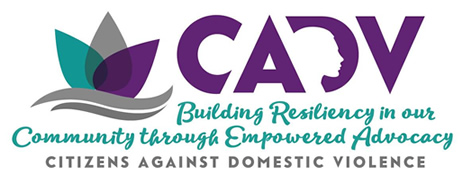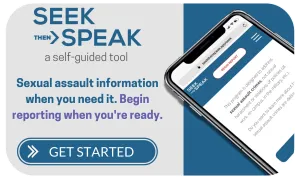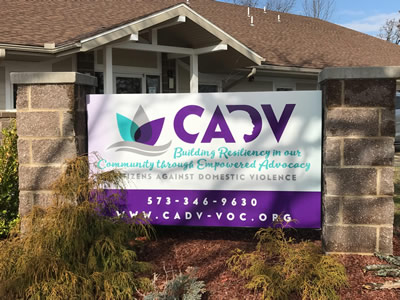Exploring Help-Seeking Pathways: The Role of Informal Support in Supporting Sexual Assault Victims and Their Pursuit of Formal Resources
My name is Teairstayn Jones and I am a graduate student under the direction of Professor Danielle Wallace and Professor Stacia Stolzenberg in the School of Criminal Justice and Criminology at Arizona State University. I am conducting a research study to better understand how victims of sexual assault seek help and gain support from those close to them and formal resources (e.g., law enforcement agencies, medical agencies, legal or court services, mental health services, campus offices, etc…).
I am recruiting individuals to complete an online survey, which should take 25 minutes to complete. You must be 18 years and older to complete the survey and live in the United States. The online survey will ask you about your sexual assault experience, who you chose to tell about the assault, and how you got access to resources for help. There are a few questions that will ask you to dive deeper into who you disclosed to and how you accessed formal resources (e.g., law enforcement agencies, medical agencies, legal or court services, mental health services, campus offices, etc…). If you did not seek help from formal resources, you will be asked about what the criminal justice system, as well as those in your social circle, can do to encourage formal help-seeking.
As a thank you for participating in this survey, you will have a chance to win one of six $100 Amazon gift cards. At the end of the survey, you will be directed to a separate form where you can enter your email address for the prize drawing. Your email will not be linked to your survey responses and will only be used for the drawing. Six winners will be selected by August and notified via email.
Your participation in this study is voluntary; you can quit at any time. Also, all information is anonymous. Personally identifying information will only be collected if you agree to participate in a follow-up Zoom interview which is collected through a separate survey.
If you’re interested in participating in this study, please click on the link below:
https://asupublicprograms.co1.qualtrics.com/jfe/form/SV_bBXKSUihWEWOAbY
If you have any questions concerning the research study, please contact the research team: Dr. Wallace (danielle.wallace@asu.edu), Teairstayn Jones (tkjones3@asu.edu); or Dr. Stacia Stolzenberg (stacia.stolzenberg@asu.edu).
SEEK THEN SPEAK offers a way for sexual assault survivors and support people to gather information, explore options, and take action – including beginning the process of reporting to police. This interactive web-based tool was developed with grant funding and pilot tested in several diverse communities. Both survivors and professionals expressed how much promise it holds. With future outreach, we will be able to help more survivors to pursue justice and healing on their own terms. Click below to get started!
SEXUAL VIOLENCE
What is sexual violence?
Sexual violence is non-consensual conduct of a sexual nature. It encompasses a wide range of sexually violent acts that includes sexual harassment, voyeurism, exposure, sexual exploitation, sexual assault, rape, forcible sodomy, incest, child sexual abuse, ritual abuse, statutory rape, drug-facilitated sexual assault and intimate partner sexual assault. The perpetrator can be a stranger or someone the victim knows, including an intimate partner. It is purposeful, violent behavior. The perpetrator accomplishes sexual violence through threat, coercion, exploitation, deceit, force, physical or mental incapacitation, and/or using power and authority.
Sexual Violence is unlike other crimes!
Sexual violence is an intensely personal offense. It is devastating psychological and /or physical attack that can leave the victim feeling a wide range of emotions. These include fear, humiliation, loss of control, vulnerability, embarrassment, guilt or anger. Some victims may not define what happened to them as a crime, some may feel as if they did something to deserve the attack, unlike victims of other crimes, sexual violence victims are often not believed, and are sometimes even blamed, for an act of violence committed against them that was completely beyond their control.
Empowering support is essential:
The person who has experienced sexual violence needs and deserves the right to self-determination regarding what occurs following the victimization. She/He is the expert on their situation. She/He has the best sense of her risks if she/he decides to speak with the police, share their story with family or keep what happened to herself/himself. Anyone seeking to help a victim of sexual violence must encourage and respect the choices they make. This will help them regain the sense of control over their life that was shattered by the sexual violence.
It is vital that the survivor feels believed and respected. If you are asked to support someone who has suffered sexual violence, note the following responsibilities:
- Help them regain a sense of safety
- Listen to them and acknowledge their experience
- Affirm the injustice of the violence perpetrated against them
- Respect their autonomy
- Promote their access to community services
- Respect and safeguard their confidentiality







